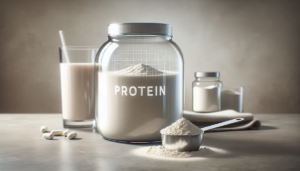Nutrition Tips for Endurance Athletes: Fueling Your Passion
Nutrition Tips for Endurance Athletes: Fueling Your Passion
Endurance athletes require a unique nutritional approach to sustain their performance, enhance recovery, and maintain overall health. This article delves into essential nutrition tips, breaking them down into digestible categories to help you fine-tune your diet for peak performance.
1. Understanding Energy Needs
1.1 Calculate Your Daily Caloric Needs
Accurate caloric intake is imperative for endurance athletes. Your energy expenditure depends on various factors, including age, weight, training intensity, and duration. A rough estimate can be calculated using the following formula:
[
text{Daily Caloric Needs} = text{BMR} times text{Activity Factor}
]
- BMR (Basal Metabolic Rate): Caloric requirements at rest.
- Activity Factor: A multiplier based on your training frequency and intensity (e.g., 1.2 for sedentary, up to 2.5 for highly active athletes).
1.2 Macronutrient Distribution
Endurance athletes should aim for a macronutrient distribution that supports prolonged energy demands:
- Carbohydrates (55-70%): The primary energy source during long-duration activities. Focus on complex carbs (whole grains, fruits, vegetables) for sustained energy.
- Proteins (10-20%): Crucial for recovery and muscle repair. Sources include lean meats, dairy, beans, and legumes.
- Fats (20-35%): Necessary for hormone production and nutrient absorption. Encourage healthy fats from avocados, nuts, and olive oil.
2. Pre-Workout Nutrition
2.1 Timing Your Meals
Timing is critical in pre-workout nutrition. Aim to consume a meal rich in carbohydrates and moderate in protein 3-4 hours before training. If time is limited, have a quick snack 30-60 minutes prior.
2.2 Recommended Foods
- 3-4 Hours Before: Pasta with vegetables and chicken, oatmeal with banana and almonds.
- 30-60 Minutes Before: Energy gels, bananas, or nut butter on whole-grain toast.
3. Hydration Strategies
3.1 Importance of Hydration
Hydration influences performance, recovery, and overall well-being. Even a 2% decrease in body weight due to fluid loss can affect performance.
3.2 Electrolyte Balance
In prolonged activities, especially in heat, you lose electrolytes through sweat. Include sodium, potassium, and magnesium in your intake to balance electrolytes.
3.3 Hydration Schedule
- Before Exercise: Drink 16-20 ounces of water at least two hours before an event.
- During Exercise: Aim for 7-10 ounces every 10-20 minutes, adjusting for temperature and exertion levels.
- Post-Exercise: Replenish fluids with water or electrolyte solutions immediately after activity.
4. Fueling During Endurance Events
4.1 Carbohydrate Intake
Sustain energy levels during prolonged sessions by consuming carbohydrates. The general guideline is:
- 30-60 grams of carbohydrates per hour for activities lasting longer than 60 minutes.
- 60-90 grams of carbohydrates per hour for prolonged or extreme endurance events.
4.2 Types of Fuels
- Sports Drinks: Provide hydration and carbohydrates. Look for options with 6-8% carbohydrate concentration.
- Energy Gels and Bars: Convenient, portable sources of carbs. Experiment during training to identify which works best for you.
5. Post-Workout Recovery
5.1 Replenishing Nutrients
Immediately after your workout, focus on refueling with a combination of carbohydrates and protein to optimize recovery. The goal is to strike the right balance to replenish glycogen stores and support muscle repair.
5.2 Recommended Ratio
Aim for a 3:1 or 4:1 ratio of carbohydrates to protein. For example, a smoothie made with fruit and yogurt, or a turkey sandwich on whole grain bread.
6. Meal Planning and Preparation
6.1 Create a Weekly Menu
Planning meals can ensure you have the nutrients required for training intensity. Opt for whole foods, and find recipes that incorporate lean proteins, wholesome grains, and plenty of fruits and vegetables.
6.2 Batch Cooking
Prepare meals in bulk to save time and ensure you have healthy options available post-training. Consider stir-fries, soups, or baked goods that can be easily portioned.
7. Supplements for Endurance Athletes
7.1 Common Supplements
While whole foods should be the primary source of nutrients, some athletes may benefit from supplements:
- Protein Powders: Useful for meeting protein needs post-exercise.
- BCAAs (Branched-Chain Amino Acids): May support muscle recovery and reduce soreness.
- Electrolyte Tablets: Help maintain hydration levels; consider during hot weather training.
7.2 Consult a Professional
Before starting any supplementation, consult with a sports nutritionist or a healthcare provider to identify your specific needs and avoid unnecessary products.
8. Dietary Considerations
8.1 Vegan and Vegetarian Options
Endurance athletes can perform optimally with plant-based diets. Focus on high-quality protein sources like lentils, chickpeas, quinoa, and tofu. Pair with whole grains and plenty of fruits and vegetables for a balanced approach.
8.2 Food Sensitivities and Allergies
Identify any food sensitivities and adjust your diet accordingly. This might require consultation with a dietitian to ensure complete nutrition while avoiding allergens.
9. Experimentation and Flexibility
9.1 Personalized Nutrition
Every athlete’s body reacts differently to food. Use training sessions as an opportunity to test different foods and timing strategies to find what works best for you.
9.2 Stay Adaptable
It’s important to adapt your nutrition as your training volumes and intensities change. Be open to modifying your diet based on your performance, how you feel, and your recovery rate.
10. Mental Approach and Eating Mindfully
10.1 Mindful Eating
Practice awareness of your food choices. Eating mindfully can enhance your relationship with food, allowing an intuitive approach to fueling your body properly.
10.2 Stress Management
The psychological aspect of endurance training can influence your eating habits. Managing stress and ensuring adequate rest can help maintain a healthy approach to nutrition.
11. Staying Informed
11.1 Education on Nutrition Science
Continuously educate yourself on the latest nutrition research as it pertains to endurance training. Reliable resources include academic journals, books by sports nutrition experts, and reputable organizations.
11.2 Community Engagement
Join forums or local groups of endurance athletes. Engaging with fellow athletes can provide support, tips, and motivation. Sharing experiences can enhance your understanding of effective nutritional strategies.
12. Planning for Competition
12.1 Tapering Phase Nutrition
In the days leading up to a competition, focus on carbohydrate loading to maximize glycogen stores. Decrease training intensity while increasing carb intake to support performance.
12.2 Race Day Menu
Prepare a race day nutrition plan that includes breakfast options that have been tested in training. Include familiar elements such as oatmeal, a bagel with peanut butter, or yogurt with fruit.
13. Monitoring Your Progress
13.1 Track Intake and Performance
Consider using a food diary or an app to track your daily nutrition. Monitoring your intake and performance metrics will provide insights into what works for you.
13.2 Body Composition Assessment
Regularly assess body composition to ensure you’re in an optimal range that supports endurance performance. Consider seeking professional analysis for accurate results.
14. The Role of Recovery
14.1 Importance of Sleep
Adequate sleep is essential for recovery and performance. Aim for 7-9 hours per night to enhance muscle repair, cognitive function, and overall well-being.
14.2 Active Recovery
Incorporate active recovery sessions into your training regimen. Techniques like yoga, light swimming, or cycling at a low intensity promote blood flow without overexerting muscles.
15. Nutritional Research
15.1 Keep Up with Developments
Sports nutrition is an evolving field. Staying updated on new research and findings can enhance your understanding and practice. Subscribe to journals, newsletters, or webinars focused on sports nutrition.
15.2 Seek Professional Guidance
Consider consulting a sports dietitian who can provide personalized recommendations that align with your training goals, performance needs, and health.
By implementing these nutrition strategies, endurance athletes can improve their performance and recovery, successfully fueling the passion for their sport.







